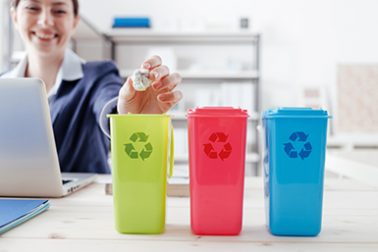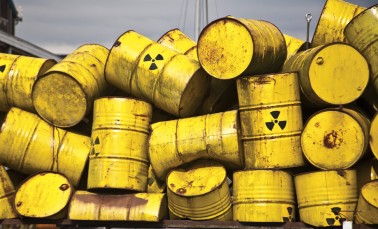Waste Management
 Disposing of your business waste safely and within the confines of the law is an important part of organising your processes and procedures to diminish the risks of occupational health hazards. Good waste management is not only positive for your business but also for your employees.
Disposing of your business waste safely and within the confines of the law is an important part of organising your processes and procedures to diminish the risks of occupational health hazards. Good waste management is not only positive for your business but also for your employees.
As health and safety is a key aspect of government legislation, you might expect the Health and Safety Executive to bear responsibility for this area. However, most often, local authorities have the responsibility of dealing with and disposing of waste products.
Occupational health issues
Businesses have a diverse range of waste materials that need to be disposed of, and various industry sectors have differing products and methods for waste removal.
There are many areas in waste management that can give rise to health hazards, and you and your employees should be aware of these to encourage health and safety protection, as well as respectable working practices.
Green and food waste (bioaerosols)
Green waste comes from cuttings from parks and similar areas, hedges, lawns and large grassy areas, while food waste comes from both commercial and domestic premises. Most of this waste goes into compost manufacturing and anaerobic digestion (an energy recovery process).
If left behind, green waste creates a warm and moist environment in which microbes quickly grow, forming bioaerosols – microbes suspended in the air with dust. People can breathe in these bioaerosols when working. You can reduce this risk by minimising dust clouds using a set of controls that lessen the possibility of breathing in potentially damaging microbes.
Local authorities have green waste containers at their rubbish disposal depots, and some (though not all) will collect domestic food waste.
Discarded needles
Discarded needles can always pose a danger because you don’t know the reason for their prior usage or whether they carry any dangerous infections. The health industry has a frequent need to dispose of used needles and you can get sharps bins in which to safely store them before their collection.
Needles found in public areas can prove especially dangerous to children and animals, and local authorities in the area should always receive information about their location. This applies to schools as well as other places where someone may come across these needles.
There are potentially serious hygiene issues with this type of waste, and in the most severe cases, a danger to life.
Tackling waste at the source
Recycling has become a normal part of both commercial and domestic life, and as awareness grows, there are more organisations and individuals looking to cut down on the amount of waste that they generate while finding ways to dispose of it effectively.
The introduction by the government of a £0.05p charge for plastic bags in supermarkets, which will soon extend to all retail premises, has had a major impact on the number of bags that people use and then discard. There are also moves to reduce the number of single-use plastic bottles that cause serious environmental damage, particularly in the oceans.
Businesses that are involved in design and manufacturing can look to use less wasteful or hazardous materials in their processes as well as prepare for the cleaning, reparation and refurbishment of items and parts where possible.
As local authorities work towards reducing landfills – where unrecyclable waste products are casually dumped – the importance of recycling remains as much a global initiative as a national one, and recycling companies are an integral part of that.
Hazardous waste
 If your business deals with hazardous waste or substances that are harmful to humans, then you have a duty to ensure that these do not cause damage. Certain rules apply in England, Scotland, Wales and Northern Ireland, so you need to be clear about any differences in legislation.
If your business deals with hazardous waste or substances that are harmful to humans, then you have a duty to ensure that these do not cause damage. Certain rules apply in England, Scotland, Wales and Northern Ireland, so you need to be clear about any differences in legislation.
Hazardous waste includes substances such as asbestos, solvents, batteries, pesticides, chemicals and oils (though not edible ones). You will need to classify your waste to see if it is hazardous and, if it is, then you must separate and store it appropriately. To avoid a potential occupational risk, you should ensure that you train any staff handling such materials and only allow authorised businesses to dispose of this type of waste. These businesses should have the proper registration, and the waste sites should have environmental permits.
Hazardous waste, if not properly disposed of, can do a lot of damage to the environment, particularly if it leaks into water systems.
New charging proposals
The Environment Agency opened a consultation on 30 November 2017 with proposals for new charges that could encompass radioactive substances and other waste areas, marine licenses and regulations for electrical waste and electronic equipment. The consultation closed on 26 January 2018, with the results due to be published in due course so your business should be aware of what changes there may be for waste management in the future.
